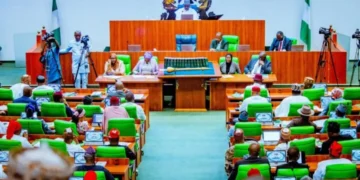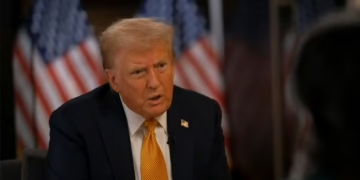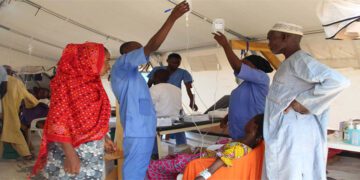President Bola Tinubu has charged the judicial arm of government to embark on reforms that would ensure a functional justice system that will support a rapidly growing economy, guarantee basic human and political rights of individuals, as well as provide security and justice to all Nigerians. According to him, much can be achieved when institutions of government, including the three arms of government Executive, Legislature and Judiciary unite to acknowledge their challenges and brainstorm with a view to proffering solutions to the problems bedevilling Nigeria.
The President, represented by Vice-President Kashim Shettima, who advised on Wednesday while declaring open this year’s National Summit on Justice in Abuja, urged the judiciary to align its activities within the tenets of his administration’s Renewed Hope Agenda, particularly as they relate “to the priorities on inclusivity, fairness, rule of law, and anti-corruption stance, among other things.” Noting that his administration had pledged to be impartial and adhere to constitutional principles, President Tinubu said the summit availed institutions in the justice sector “with an opportunity to push boundaries by identifying needed system changes and critical reforms that would allow Nigerians to reap the benefits of huge investments in the sector”.
Delivering the President’s address at the event, Shettima explained that the Federal Government is determined to implement its policies and promises made to Nigerians for a renewed hope, through the instrumentality of the “law and the dictates of justice to create opportunities for our people”. Outlining the preliminary measures he took to reposition the judiciary in the bid to support a just and rules-based Nigeria, President Tinubu recalled that his administration made funding for the third arm of government a top priority, doubling it in the Renewed Hope budget 2024 by more than 100 per cent from last year’s budget.
He listed other efforts his government has made to reposition the judiciary to include a full complement of 21 Justices of the Supreme Court as required by law for the first time after many years, and his approval of “a substantial increase in the salaries and emoluments of judges, which is currently undergoing legislative action”. The President noted however that despite the progress being made in the justice sector, there “is an urgent need for a functional justice system capable of supporting a rapidly growing economy, guaranteeing basic human and political rights of individuals, and providing security and justice to all.”













































































